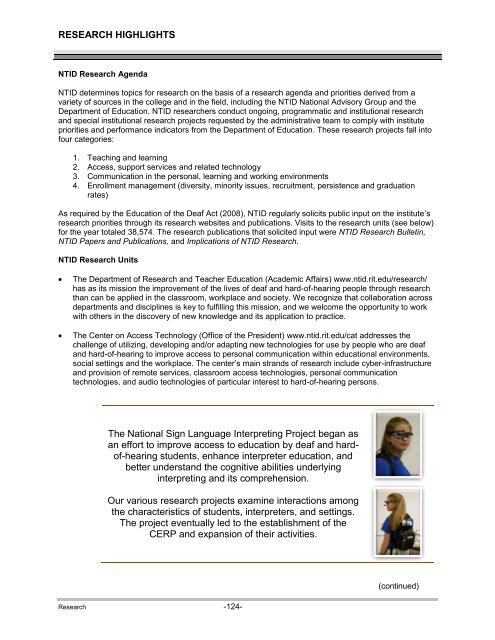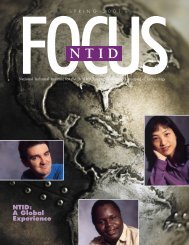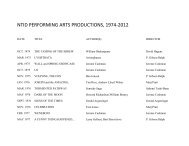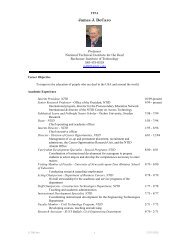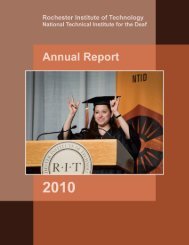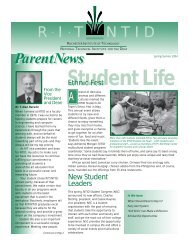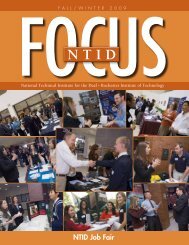Social Security Disability Insurance (SSDI) - National Technical ...
Social Security Disability Insurance (SSDI) - National Technical ...
Social Security Disability Insurance (SSDI) - National Technical ...
You also want an ePaper? Increase the reach of your titles
YUMPU automatically turns print PDFs into web optimized ePapers that Google loves.
RESEARCH HIGHLIGHTS<br />
NTID Research Agenda<br />
NTID determines topics for research on the basis of a research agenda and priorities derived from a<br />
variety of sources in the college and in the field, including the NTID <strong>National</strong> Advisory Group and the<br />
Department of Education. NTID researchers conduct ongoing, programmatic and institutional research<br />
and special institutional research projects requested by the administrative team to comply with institute<br />
priorities and performance indicators from the Department of Education. These research projects fall into<br />
four categories:<br />
1. Teaching and learning<br />
2. Access, support services and related technology<br />
3. Communication in the personal, learning and working environments<br />
4. Enrollment management (diversity, minority issues, recruitment, persistence and graduation<br />
rates)<br />
As required by the Education of the Deaf Act (2008), NTID regularly solicits public input on the institute’s<br />
research priorities through its research websites and publications. Visits to the research units (see below)<br />
for the year totaled 38,574. The research publications that solicited input were NTID Research Bulletin,<br />
NTID Papers and Publications, and Implications of NTID Research.<br />
NTID Research Units<br />
The Department of Research and Teacher Education (Academic Affairs) www.ntid.rit.edu/research/<br />
has as its mission the improvement of the lives of deaf and hard-of-hearing people through research<br />
than can be applied in the classroom, workplace and society. We recognize that collaboration across<br />
departments and disciplines is key to fulfilling this mission, and we welcome the opportunity to work<br />
with others in the discovery of new knowledge and its application to practice.<br />
The Center on Access Technology (Office of the President) www.ntid.rit.edu/cat addresses the<br />
challenge of utilizing, developing and/or adapting new technologies for use by people who are deaf<br />
and hard-of-hearing to improve access to personal communication within educational environments,<br />
social settings and the workplace. The center’s main strands of research include cyber-infrastructure<br />
and provision of remote services, classroom access technologies, personal communication<br />
technologies, and audio technologies of particular interest to hard-of-hearing persons.<br />
The <strong>National</strong> Sign Language Interpreting Project began as<br />
an effort to improve access to education by deaf and hardof-hearing<br />
students, enhance interpreter education, and<br />
better understand the cognitive abilities underlying<br />
interpreting and its comprehension.<br />
Our various research projects examine interactions among<br />
the characteristics of students, interpreters, and settings.<br />
The project eventually led to the establishment of the<br />
CERP and expansion of their activities.<br />
Research -124-<br />
(continued)


